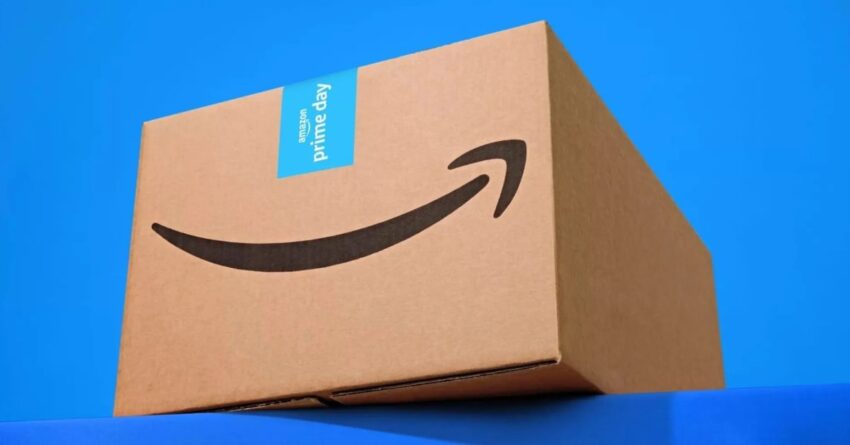
amazon will pay out 2 5 billion The Federal Trade Commission (FTC) has reached a landmark $2.5 billion settlement with Amazon, addressing allegations of misleading practices concerning its Prime subscription service.
amazon will pay out 2 5 billion
Background of the Settlement
The FTC’s investigation into Amazon’s practices began several years ago, focusing on claims that the company had engaged in deceptive marketing tactics that misled consumers regarding the benefits and costs associated with its Prime membership. The allegations suggested that Amazon’s promotional materials did not accurately represent the subscription’s features, leading consumers to believe they were receiving more value than what was actually delivered.
Amazon Prime, launched in 2005, has grown into one of the most popular subscription services globally, offering a range of benefits such as free shipping, access to streaming content, and exclusive deals. However, as the service expanded, so did scrutiny over its marketing practices. The FTC’s investigation highlighted concerns that Amazon’s advertising could create unrealistic expectations, particularly regarding the value of its offerings.
Details of the Allegations
The FTC’s allegations against Amazon included several key points:
- Misleading Advertising: The FTC claimed that Amazon’s advertisements exaggerated the benefits of Prime membership, leading consumers to believe they were receiving more services than were actually available.
- Subscription Renewal Practices: The agency raised concerns about how Amazon handled subscription renewals, suggesting that the company made it difficult for customers to cancel their memberships.
- Hidden Fees: There were also allegations that some fees associated with Prime membership were not clearly disclosed, which could lead to unexpected charges for consumers.
These practices, according to the FTC, not only misled consumers but also created an unfair competitive advantage for Amazon in the marketplace. The settlement aims to address these issues and ensure that consumers have a clearer understanding of what they are signing up for when they choose to become Prime members.
Settlement Terms
The $2.5 billion settlement will be used to compensate affected consumers who were misled by Amazon’s practices. This payout is one of the largest in FTC history and reflects the seriousness of the allegations. The settlement includes provisions for:
- Consumer Refunds: A significant portion of the settlement will be allocated to refunding consumers who were affected by the misleading practices.
- Changes to Marketing Practices: Amazon will be required to implement changes in how it markets its Prime service, ensuring that all advertisements are clear, accurate, and not misleading.
- Enhanced Transparency: The company must improve its communication regarding subscription terms, including clearer disclosures about fees and cancellation policies.
Implications for Amazon and Consumers
This settlement has far-reaching implications for both Amazon and its subscribers. For Amazon, the financial penalty is significant, but the reputational damage may be even more impactful. The company has built its brand on trust and customer satisfaction, and allegations of misleading practices could erode that trust.
For consumers, the settlement represents a victory in the ongoing battle for transparency in subscription services. Many consumers have expressed frustration over subscription models that are difficult to navigate, and this settlement could set a precedent for how other companies handle similar issues. It may encourage consumers to be more vigilant about the terms of their subscriptions and to demand clearer information from service providers.
Stakeholder Reactions
The announcement of the settlement has elicited a variety of reactions from stakeholders, including consumer advocacy groups, legal experts, and Amazon itself.
Consumer Advocacy Groups
Consumer advocacy groups have largely welcomed the settlement, viewing it as a necessary step toward holding large corporations accountable for their marketing practices. These organizations have long argued that consumers deserve clear and honest information about the products and services they purchase. The FTC’s action is seen as a validation of these concerns.
Legal Experts
Legal experts have noted that this settlement could have broader implications for the tech industry as a whole. With increasing scrutiny on big tech companies, the outcome of this case may influence future regulatory actions against other firms accused of misleading practices. It may also encourage more consumers to report deceptive marketing tactics, leading to further investigations.
Amazon’s Response
In response to the settlement, Amazon issued a statement expressing its commitment to customer satisfaction and transparency. The company acknowledged the FTC’s concerns and stated that it would work to ensure that its marketing practices align with consumer expectations. Amazon emphasized that it values its Prime members and aims to provide them with the best possible experience.
Future Considerations
As the dust settles from this landmark settlement, several key considerations emerge for both Amazon and the broader subscription service landscape:
- Increased Regulatory Scrutiny: This case may signal a shift toward increased regulatory scrutiny of subscription services, particularly those operated by large tech companies. Regulators may be more inclined to investigate similar practices in the future.
- Consumer Awareness: The settlement could lead to heightened consumer awareness regarding subscription services. Consumers may become more discerning about the terms of their memberships and more likely to report misleading practices.
- Impact on Business Models: Companies may need to reevaluate their subscription models to ensure compliance with regulatory standards. This could lead to changes in how services are marketed and how fees are disclosed.
Conclusion
The $2.5 billion settlement between the FTC and Amazon marks a significant moment in the ongoing conversation about consumer protection and corporate accountability. As subscription services continue to proliferate, the need for transparency and honesty in marketing practices becomes increasingly vital. This case serves as a reminder that consumers have the right to clear and accurate information about the services they choose to engage with, and it sets a precedent for future regulatory actions in the tech industry.
Source: Original report
Was this helpful?
Last Modified: September 25, 2025 at 9:57 pm
3 views















